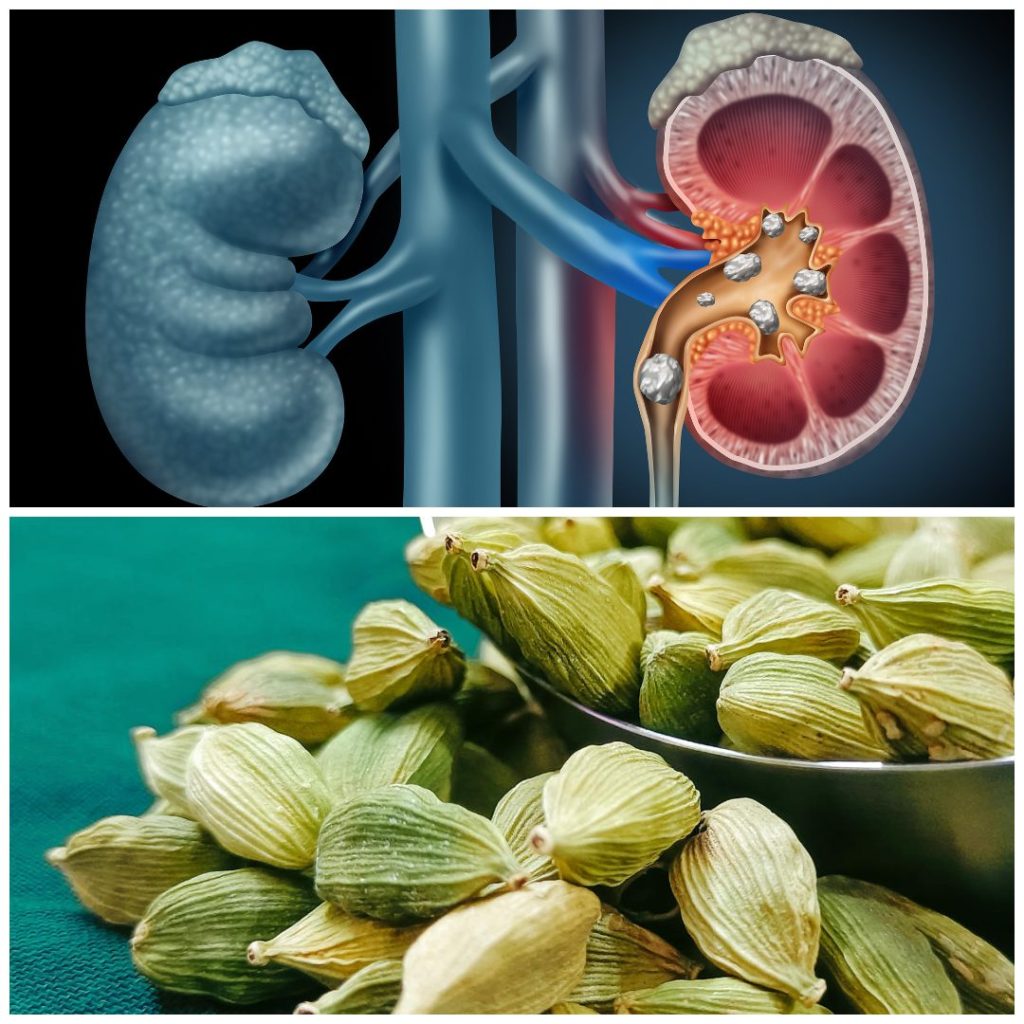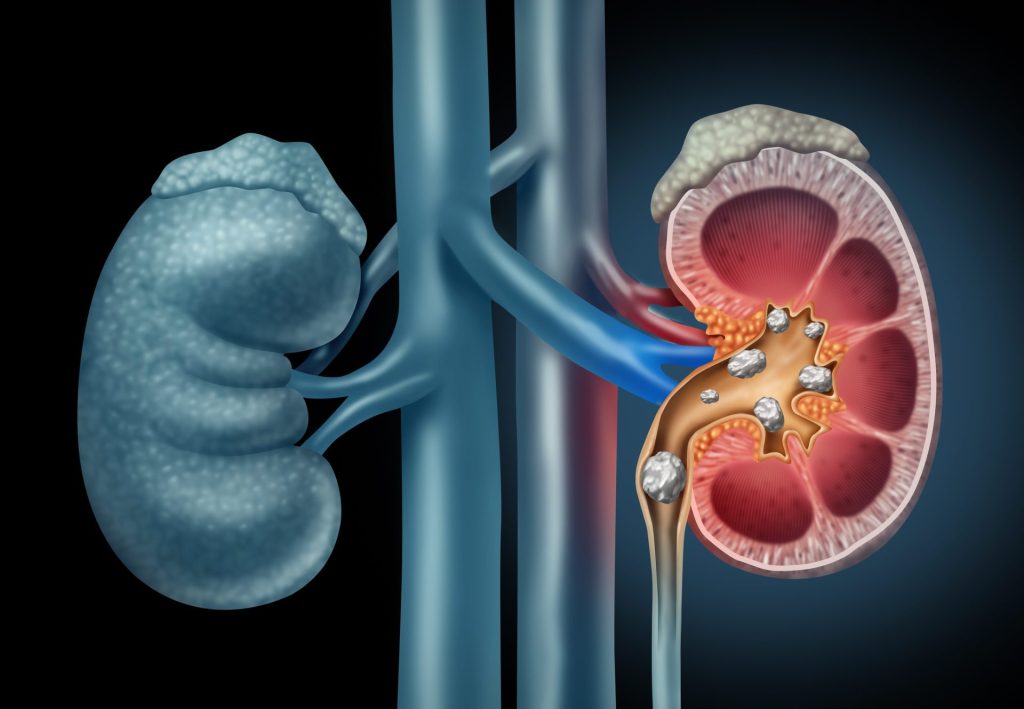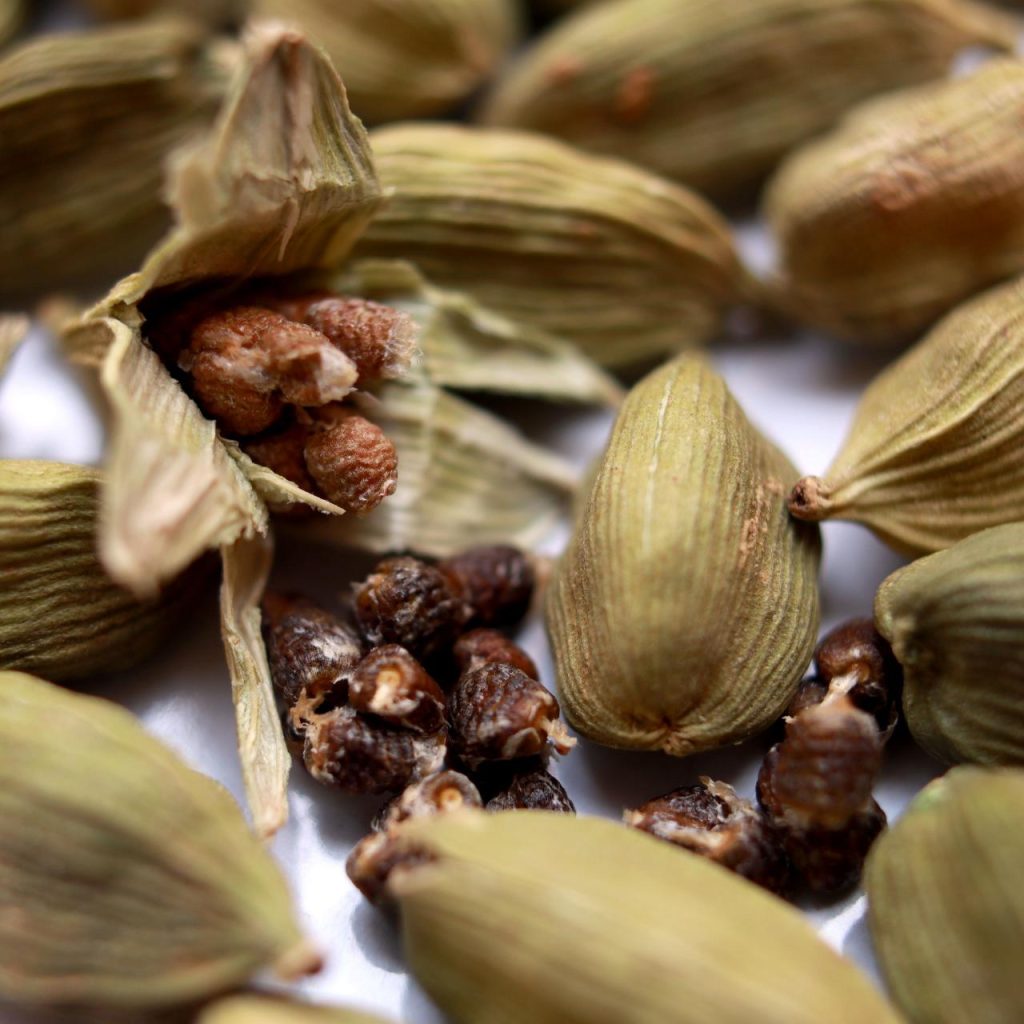Cardamom, known as the “queen of spices,” has been cherished for centuries in various culinary and medicinal traditions. Originating from the forests of India and Sri Lanka, cardamom (Elettaria cardamomum) has found its way into the spice racks and medicine cabinets of cultures worldwide.
This aromatic spice, with its distinctive sweet and spicy flavor, is a favorite in the kitchen and a revered component in traditional medicine systems, particularly Ayurveda. Cardamom stands out for its potential to support kidney health among its numerous health benefits.

This article delves into the various ways cardamom can benefit the kidneys, backed by scientific research and traditional knowledge.
Understanding Kidney Health
Before exploring the benefits of cardamom, it’s essential to understand the critical role kidneys play in the human body. The kidneys are vital organs responsible for filtering blood, removing waste, regulating electrolyte balance, and maintaining fluid balance. They also play a crucial role in blood pressure regulation, red blood cell production, and the activation of vitamin D. Given these multifaceted functions, maintaining kidney health is paramount for overall well-being.
CLICK TO READ – The Heart Benefits of Cardamom
Nutritional Profile of Cardamom
Cardamom is rich in various nutrients and bioactive compounds, which contribute to its health benefits. Key components include:
- Vitamins and Minerals: Cardamom contains vitamins like vitamin C, niacin, and riboflavin, along with minerals such as calcium, potassium, and magnesium, which are essential for kidney function.
- Antioxidants: Cardamom is packed with antioxidants, including flavonoids, which help combat oxidative stress—a significant factor in kidney damage.
- Essential Oils: The essential oils in cardamom, such as cineole, limonene, and terpineol, have therapeutic properties that support kidney health.
CLICK TO READ – The Heart Benefits of Cardamom
Cardamom and Kidney Health: Scientific Insights
1. Anti-Inflammatory Properties
Inflammation is a common underlying factor in many kidney diseases, including chronic kidney disease (CKD). Cardamom’s anti-inflammatory properties can help reduce inflammation in kidney tissues. Research indicates that the active compounds in cardamom, such as terpenes and flavonoids, can inhibit the production of pro-inflammatory cytokines, thereby mitigating inflammation.
A study published in the “Journal of Ethnopharmacology” demonstrated that cardamom extract significantly reduced inflammation markers in rats with induced kidney inflammation. This suggests a potential protective effect of cardamom against inflammatory kidney diseases.
2. Antioxidant Effects
Oxidative stress, resulting from an imbalance between free radicals and antioxidants in the body, is a major contributor to kidney damage. Cardamom’s rich antioxidant profile helps neutralize free radicals, reducing oxidative stress and protecting kidney cells from damage.
A study in the “Indian Journal of Biochemistry & Biophysics” found that cardamom extract enhanced the antioxidant capacity in rats, leading to reduced oxidative stress in kidney tissues. This indicates that regular consumption of cardamom may bolster the body’s antioxidant defenses, promoting kidney health.
Cinnamon-Honey Slim Brew: Your Weight Loss Guide
3. Diuretic Properties
Cardamom has natural diuretic properties, which can aid in the removal of excess fluids and waste products from the body. Diuretics are often used in managing conditions such as hypertension and edema, which can be detrimental to kidney health if left unchecked.
The diuretic effect of cardamom helps increase urine output, facilitating the elimination of toxins and reducing the risk of kidney stone formation. A study in the “Journal of Food Science and Technology” confirmed the diuretic action of cardamom in animal models, highlighting its potential use in promoting kidney function and detoxification.
Cinnamon-Honey Slim Brew: Your Weight Loss Guide
4. Blood Pressure Regulation

Hypertension is a significant risk factor for kidney disease. Cardamom’s ability to lower blood pressure is beneficial for kidney health, as it reduces the strain on these vital organs.
Clinical trials have shown that cardamom can effectively reduce blood pressure in individuals with hypertension. A study published in the “Indian Journal of Biochemistry & Biophysics” reported that daily intake of cardamom significantly lowered systolic and diastolic blood pressure in participants over 12 weeks. By maintaining healthy blood pressure levels, cardamom helps prevent kidney damage and supports overall renal function.
5. Protection Against Kidney Stones
Kidney stones are a common urological issue caused by the crystallization of minerals in the urine. Cardamom’s diuretic and detoxifying properties can help prevent the formation of kidney stones by ensuring regular urine flow and reducing the concentration of stone-forming substances.
Furthermore, cardamom contains compounds that can inhibit the aggregation of calcium oxalate crystals, which are the most common type of kidney stones. Research published in the “Journal of Pharmacy and Pharmacology” demonstrated that cardamom extract reduced the size and number of calcium oxalate crystals in animal models, indicating its potential in kidney stone prevention.
Cinnamon-Honey Slim Brew: Your Weight Loss Guide

6. Antimicrobial Activity
Infections, particularly urinary tract infections (UTIs), can ascend to the kidneys and cause serious complications such as pyelonephritis. Cardamom possesses antimicrobial properties that can help fight off bacterial infections, reducing the risk of kidney infections.
Studies have shown that cardamom essential oil exhibits significant antibacterial activity against common pathogens such as Escherichia coli and Staphylococcus aureus. By preventing and managing infections, cardamom contributes to the protection and maintenance of kidney health.
7. Detoxification and Cleansing
Cardamom is known for its detoxifying properties, which can support kidney function by aiding in the removal of toxins from the body. The spice promotes detoxification through enhanced bile flow and improved digestive health, which indirectly benefits the kidneys.
A study in the “Journal of Medicinal Food” highlighted the detoxifying effects of cardamom, showing that it enhanced liver function and improved the body’s overall detoxification processes. Since the liver and kidneys work together to remove waste products from the blood, supporting liver health with cardamom also benefits kidney function.

8. Glucose Metabolism and Kidney Health
Diabetes is a leading cause of kidney disease. Cardamom has been shown to improve glucose metabolism, which can help manage diabetes and prevent diabetic nephropathy—a severe complication affecting the kidneys.
Research published in the “Journal of Evidence-Based Complementary & Alternative Medicine” indicated that cardamom supplementation improved insulin sensitivity and reduced blood sugar levels in diabetic rats. By maintaining healthy blood glucose levels, cardamom helps protect the kidneys from diabetes-related damage.
Traditional Uses and Modern Applications
In addition to scientific research, traditional medicine systems have long recognized the benefits of cardamom for kidney health. In Ayurveda, cardamom is considered a tridoshic herb, balancing Vata, Pitta, and Kapha doshas, and is used to treat urinary disorders, detoxify the body, and improve digestion.
Modern applications of cardamom for kidney health include its incorporation into dietary supplements, herbal teas, and functional foods. These products leverage the spice’s natural properties to support kidney function and overall health.
Practical Ways to Incorporate Cardamom for Kidney Health
- Dietary Inclusion: Add cardamom to your daily diet by using it in cooking. It can be added to curries, rice dishes, desserts, and beverages like tea and coffee.
- Herbal Teas: Brew cardamom tea by boiling cardamom pods in water. This soothing tea can be consumed daily to reap the health benefits.
- Supplements: Cardamom supplements are available in the form of capsules and powders. Consult with a healthcare provider before starting any new supplement regimen.
- Spice Blends: Use spice blends containing cardamom, such as garam masala or chai spice mix, to enhance the flavor and health benefits of your meals.
Conclusion
Cardamom is a versatile and powerful spice with a myriad of health benefits, particularly for kidney health. Its anti-inflammatory, antioxidant, diuretic, and antimicrobial properties and ability to regulate blood pressure and support detoxification make it an invaluable addition to a kidney-friendly diet.
While traditional uses and modern research both highlight its potential, it is essential to incorporate cardamom into your routine mindfully and consult healthcare professionals, especially for individuals with existing kidney conditions. Embracing cardamom’s benefits can contribute significantly to maintaining healthy kidneys and overall well-being.
